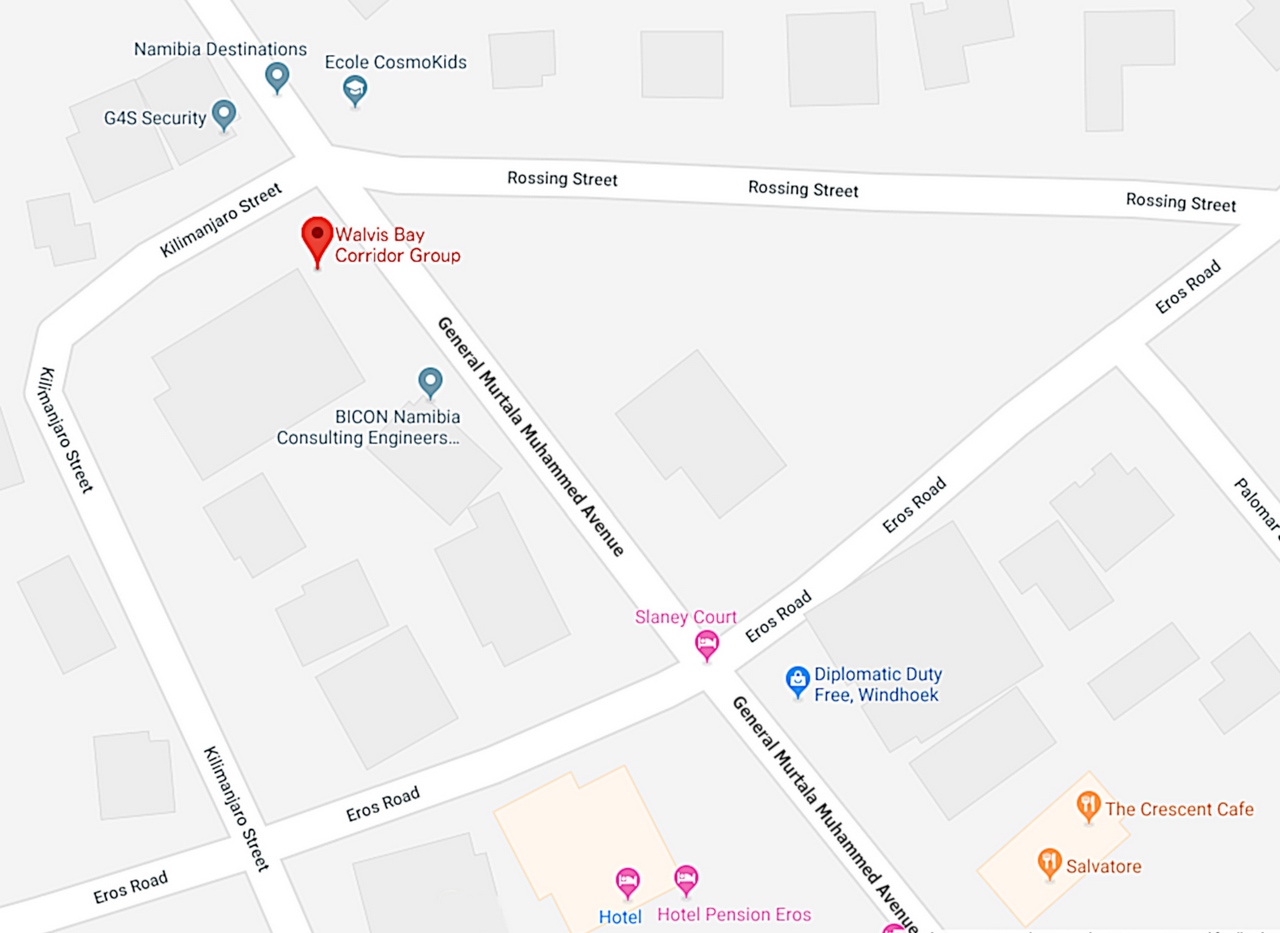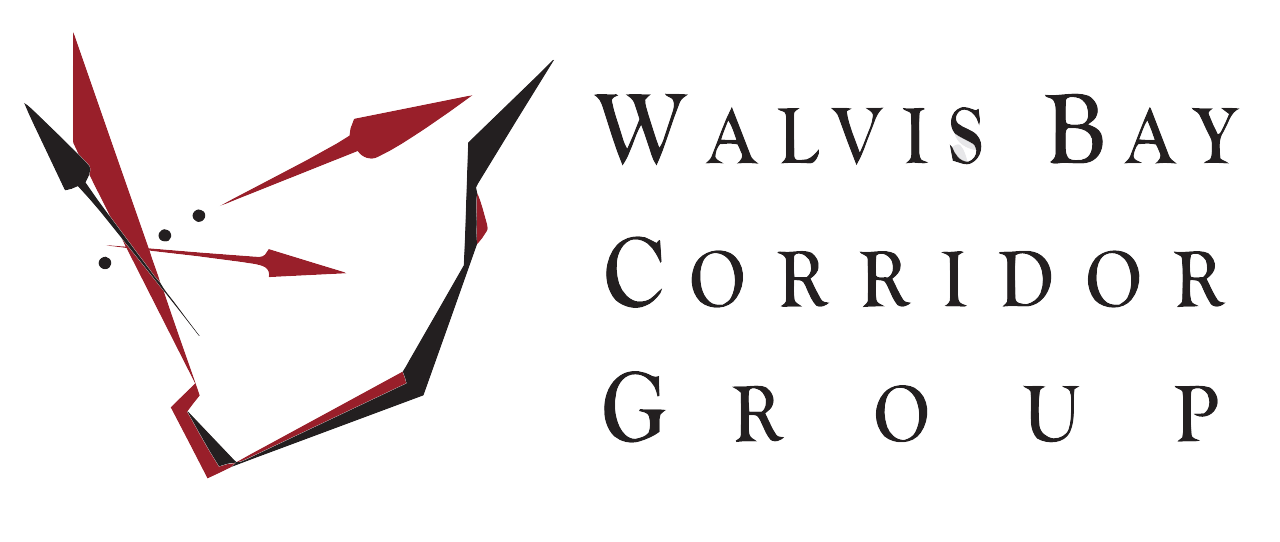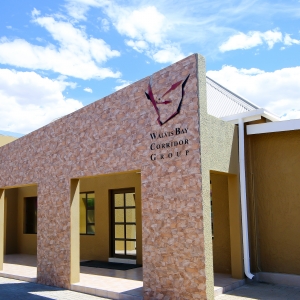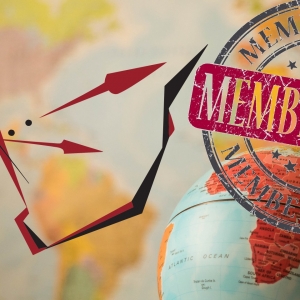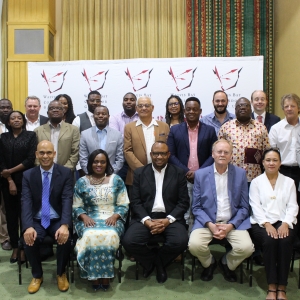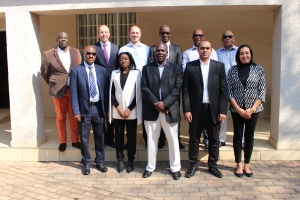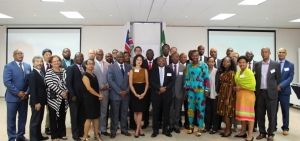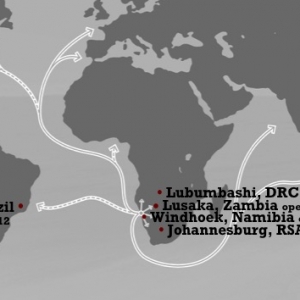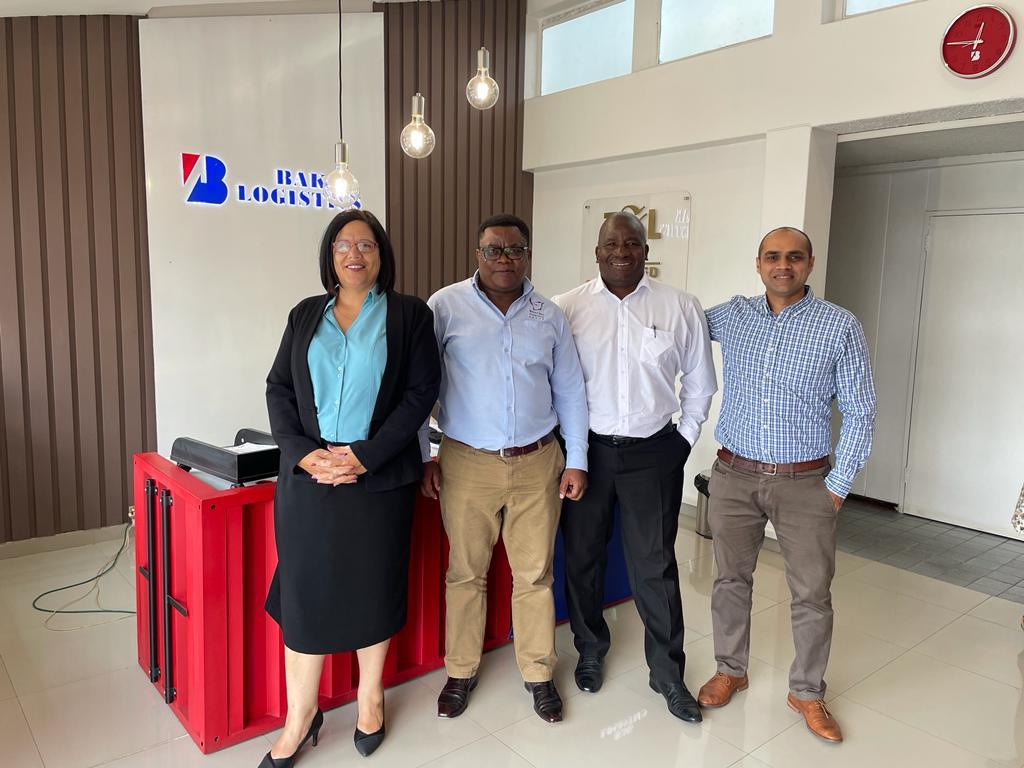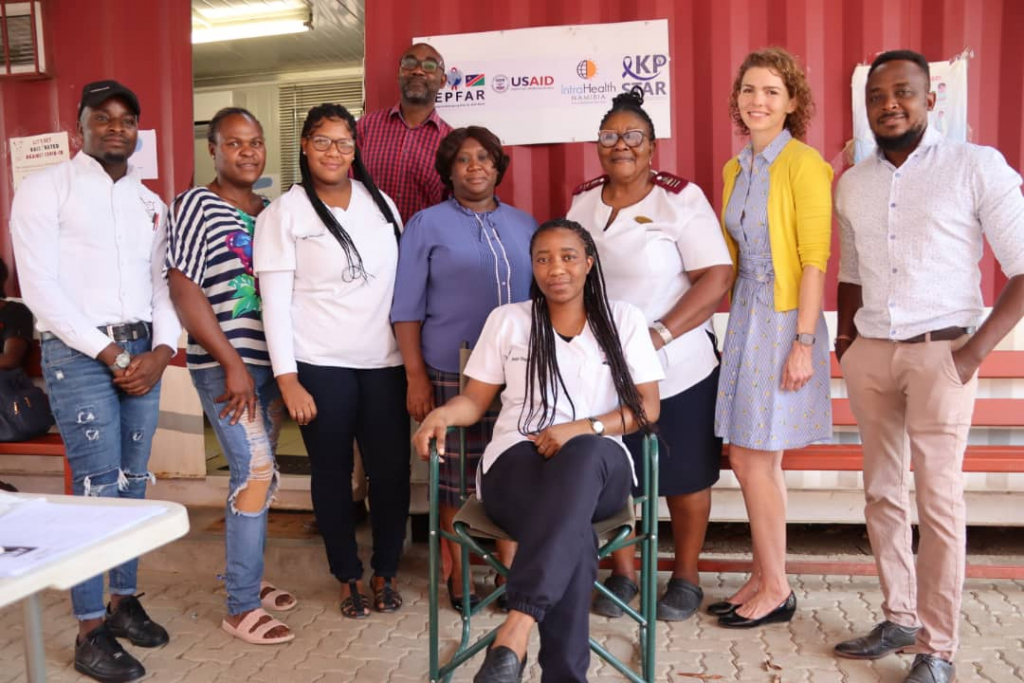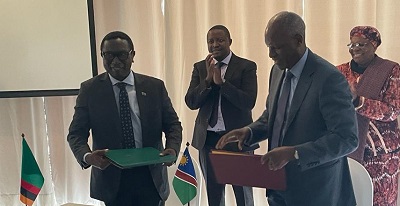THE EVOLUTION OF THE WALVIS BAY CORRIDOR GROUP
This year, the Walvis Bay Corridor Group (WBCG) celebrate our 21st Anniversary. A true success story, we have evolved into one of the key institutions in the Namibian economy, driving the agenda of the transport and logistics sector, as well as expanding the role of the sector to the Namibian economy and its people.
Since inception, the role of the WBCG has been to grow the cargo volumes on the Walvis Bay Corridors by promoting imports and exports through the Ports of Walvis Bay and Lüderitz for the Southern African region. The Walvis Bay Corridors is a network of transport routes linking the Port of Walvis Bay to the neighbouring SADC countries of South Africa, Botswana, Angola, Zimbabwe, Zambia, Democratic Republic of Congo and Malawi. The Walvis Bay Corridors consist of the Trans Kalahari Corridor, connecting Botswana and South Africa; the Walvis Bay-Ndola-Lubumbashi Development Corridor connecting Zambia, Zimbabwe, Malawi and the Democratic Republic of Congo; the Trans-Cunene Corridor connecting Angola; and the Trans-Oranje Corridor, connecting South Africa through the Port of Lüderitz.
After Namibia’s independence, the Port of Walvis Bay was converted from a fishing port to a commercial port. Cargo moving from the port along the corridors started from a zero base, as all the goods destined for Namibia were transported on road via South Africa. The Namibian Ports Authority (Namport) and Transnamib, as founding members, established the WBCG as a promotion and business development arm to assist in creating awareness of the new route in the regional and global logistics arena.
From the onset, the WBCG focused on marketing and promotion activities, however it soon became clear that continuous engagement in neighbouring countries was needed to secure cargo to and from these markets. This led to the gradual introduction of business development offices in four key markets, namely, Zambia, Democratic Republic of Congo (DRC), South Africa and Brazil. The WBCG’s branch offices continue to facilitate business development through the logistics solutions that they provide to customers and decision makers in the SADC region as well as in the international market.
Although the cargo volumes continue to grow on the route, challenges experienced on the corridor hinder repeat business. The need for a single point of coordination to address all impediments to trade on the corridors arose. This culminated in the emergence of WBCG as a Corridor Management Institution (CMI), whose purpose it is to promote and coordinate efficient corridor development and operations. As a CMI, we attribute our success to its unique public-private partnership (PPP) model that enables us to address a wide range of challenges in the logistics industry.
To this end, the WBCG focused on mobilising stakeholders with varied and diverse interests to work together for a common objective and to the mutual benefit of the corridor and the industry. Over time, more members from both the public and private sectors were added to ensure this objective was achieved. This collaboration is incredibly important for economic development within the region and for the growth of the private sector.
One of the persistent challenges for our corridors, has been the regional market’s perception that the Walvis Bay route is relatively more expensive than the other routes. WBCG’s extensive business development and marketing efforts to change this perception and convince potential customers to re-route, has been successful with some customers but it remains an ongoing challenge.
Throughout the evolution of the WBCG the core mandate remained intact, which is to grow the cargo volumes on the Walvis Bay Corridors. We realised that we needed to add key support functions in order to achieve its core business. WBCG launched its HIV/AIDS Help Desk in 2003 to address HIV/AIDS in the transport sector. From humble beginnings as an information sharing platform and handing out condoms, the WBCG’s Wellness Service is a top tier Wellness partner to the Ministry of Health & Social Services. The project currently has five roadside clinics, with another four clinics planned, as well as five mobile clinics that operate countrywide. The service provides HIV/AIDS and other primary health care services to mobile populations such as long distance truck drivers, sex workers and general communities surrounding the clinics. Most recently, the project is supporting the government’s efforts to contain the spread of the Coronavirus in the country. The WBCG’s Wellness Service availed its mobile and roadside clinics, as well as staff to Covid-19 testing and vaccination services. The WBCG’s Wellness Service became the first NGO to aid the Ministry of Health and Social Services (MoHSS) with the national Covid-19 response.
Another key support function is the Namibia Logistics Hub initiative, emanating from the industry and WBCG’s lobbying to have it added as a one of the main economic priorities to Namibia’s National Development Plan. This project is managed by the WBCG as the implementing agency, with the support of local, regional and international stakeholders.
Being transit corridors, which link into two or more countries, the WBCG advocates for the establishment of trans-boundary Corridor Management Secretariats whose core function it is to regulate and oversee of the development and implementation of seamless cross-border trade, transport and passenger facilitation measures. These regional Corridor Facilitation Committees are established with the signing of Memoradum of Understanding (MOU) between the participating corridor states. The first successful secretariat established was the Trans Kalahari Corridor Secretariat (TKCS) in 2007, and then the establishment of the Walvis Bay-Ndola-Lubumbashi Development Corridor’s (WBNLDC) secretariat. WBCG currently host the African Corridor Management Alliance’s (ACMA) secretariat. The objective of these secretariats is to reduce transport costs and transit times along the regional and continental transport corridors, respectively.
The past two decades, have been a journey of continuous improvement, growth and development for WBCG. The volumes through the ports of Walvis Bay and Lüderitz have grown from zero to over a million tonnes per annum during the past 21 years.
As an institution, we have grown into a successful business by focusing on our stakeholders and their varying needs. Through various partnerships, engagements and activities, WBCG remains committed to deliver quality service to our members and the Namibian nation at large, as we continuously adapt to the changing business environment.
In terms of major disruptions to global logistics and supply chains brought about by the Covid-19 pandemic, governments and industries are compelled to forge closer working relations with their neighbours in order to facilitate the flow of cargo along the routes. This bodes well with the Africa Continental Free Trade Area (AfCFTA) agreement, which aims to harmonise policies and procedures across the continent. It has given the countries a push in the right direction as far as aligning efforts goes.
Reducing transit time, removing bottlenecks and improving corridor efficiency through the PPP remains the cornerstone of the Walvis Bay Corridors strategy in order to reduce the cost of doing business in the SADC region. WBCG has established good working relationships over the years. Therefore, we would like to take this opportunity to thank all our stakeholders who made this possible, both from the public and private sector in Namibia as well as the SADC region.
As we enter into a new decade, we are optimistic about the future, as we continue to facilitate as well as promote transport and trade along our safe, secure, efficient and reliable corridors. We are increasingly establishing the WBCG as the preferred provider of transport and logistics solutions.

